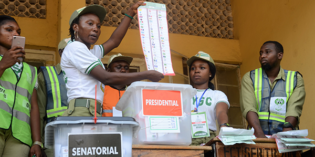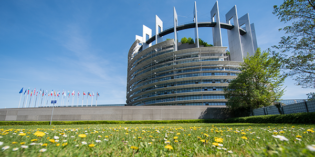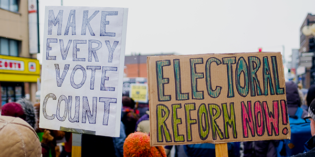Elections and electoral systems

The US Supreme Court has decided partisan gerrymandering is outside its remit. A democratic restoration now depends on the people alone.
The United States Supreme Court has determined that reviewing partisan gerrymandering cases was outside the remit of federal courts. Alex Keena, Michael Latner, Anthony J. McGann and Charles Anthony Smith argue that in failing to recognise the vote dilution caused by the redrawing of a state’s electoral district boundaries to the party in power’s advantage, as well as connecting the majority rule standard to the 14th Amendment, the decision removes Americans’ fundamental right to participate equally in the political process.

Postal votes and allegations of electoral fraud in Peterborough’s by-election
Timothy Peace and Parveen Akhtar discuss the allegations of electoral malpractice in the recent Peterborough by-election in which Labour won by 683 votes. While an initial police inquiry found that no offences were revealed, they explain why certain areas are more susceptible to such claims than others.

Academics and experts make the case for modernising Britain’s antiquated election rules
The House of Commons’ Public Administration and Constitutional Affairs committee has been gathering evidence on the rules governing the UK’s elections. Michela Palese from the Electoral Reform Society summarises key areas in need of reform.

Who runs elections and how can they be improved? Independence, resources and workforce conditions are essential for good election management
In new research published today about how elections are run around the world, Toby S. James, Leontine Loeber, Holly Ann Garnett and Carolien van Ham find that organisational independence matters for well-run elections, and that election management could be improved with more resources, improved working conditions for election employees – and a better gender balance in electoral management bodies.

Brexit has shown the limits of Britain’s broken ‘Westminster model’ of politics
The results of the recent European Parliament elections demonstrate how the traditional model of UK politics based on two ‘main’ parties is fracturing under the pressures of the Brexit process. Jess Garland sets out some proposals for reforming the system in line with voters’ wishes for a more cooperative style of politics.

#DeniedMyVote – why many EU citizens were unable to vote in the European Parliament elections
On Thursday 23 May, the UK participated in European Parliament elections. Citizens of all EU countries should be able to vote in these elections in the country they live, but many non-UK EU citizens found they had been excluded from the electoral register and were unable to vote. Toby James explains how the government’s long-term failure to improve our electoral laws and short-term pressures led to many people being denied their right to vote.

Elections to the European Parliament: what if more people voted?
Can the rise of Eurosceptic and extremist parties be blamed on the mobilisation of people who previously had abstained from the polls? An analysis of the 2009 and 2014 elections to the European Parliament suggests that support for Eurosceptic parties would be largely unaffected by changes in voter turnout, write Uwe Remer-Bollow, Patrick Bernhagen and Richard Rose. Extremist parties would even have lost vote shares if turnout had reached the higher levels observed at national general elections.

Electoral reform: the fine print matters
How and when does a dominant party reform the electoral system? And how do they shape the details of that reform? In new research on the case of Swiss cantons, André Walter and Patrick Emmenegger find that self-interest by a dominant party can be crucial to determining how proportional the new system actually is.

Strategic voting in the 2015 general election: why Liberal Democrats didn’t vote for their own party
When do people not vote for their preferred party? Isaac Hale finds that in 2015, Liberal Democrat supporters abandoned the party when they thought it had no chance of winning a seat and a tactical vote could affect the outcome in their constituencies. This shows how in a first-past-the-post electoral system smaller parties can be caught in a vicious cycle of low expectations and strategic voting by their supporters.

Do electoral results come as a surprise because our empirical models are limited?
Recent elections in many European countries have seemed less predictable, as party systems fragment and new parties challenge the established ones on a range of issues. Looking at the recent case of Finland, Zhen Im, Hanna Wass, Heikki Hiilamo and Timo Kauppinen argue that political scientists need to develop new models for mapping multiple, changing issues for electoral competition.


 Democratic Audit's core funding is provided by the Joseph Rowntree Charitable Trust. Additional funding is provided by the London School of Economics.
Democratic Audit's core funding is provided by the Joseph Rowntree Charitable Trust. Additional funding is provided by the London School of Economics.